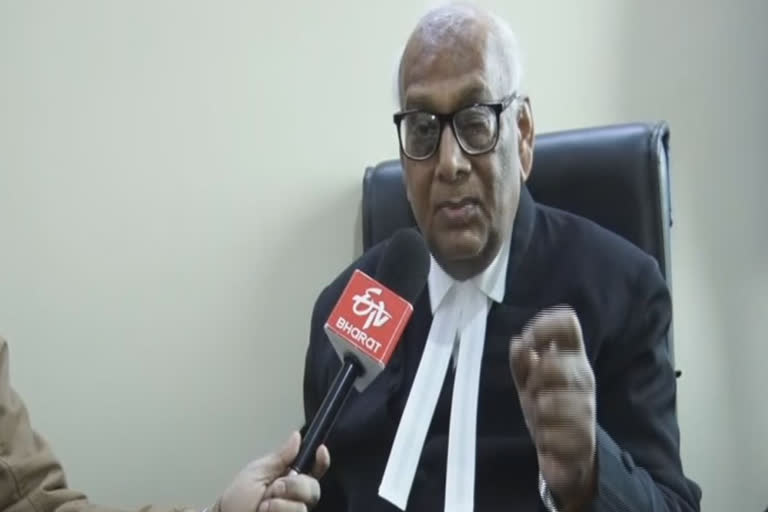New Delhi: Amid the ongoing tussle between the government and the judiciary, constitutional expert and senior lawyer in the Supreme Court, Satya Prakash Singh has said that "there could be debate and discussion between the government and the judiciary and if the discussion goes in a negative direction, there will be a struggle of power."
Speaking to ETV Bharat Singh spoke about the essence of the Indian Constitution, democracy, judiciary and its people.
"When I say living objective, it means there is a discussion. During the course of the discussion, there must be differences of opinion. But you can not develop a difference of opinion in a negative way. If it is going in a negative sense, there will be a struggle for power," said Singh while referring to the present tussle.
Also read: ED case against Rana Ayyub: SC asks Ghaziabad court to adjourn proceedings till Jan 31
The tussle started after the Supreme Court made confidential documents of the Research and Analysis Wing (RAW) public relating to the appointment of a judge. Asserting that the Indian judicial system is appreciated by countries across the globe, Singh said, "Indian judicial system is very clear. And it is accelerating the high values of Constitutional spirit." "At some point of time, the judiciary can't appreciate the government. But that does not mean harming the government," he added.
Admitting that there could be a conflict between the judiciary and the government, Singh said, "The conflicts are the example of living structures in the country. Even if we do criticize the government which goes against the constitutional spirit, the existence of the constitutional spirit will always be there."
He suggested that there should be regular teaching of the legislators on the achievement of the Constitution and the fundamental structures of this country. "Each party should understand that they can not adopt the attitude of dictatorship because India is a democratic country," said Singh.
As India is celebrating its 74th Republic Day, Singh highlighted that several other countries like Latin America, and even many Asian countries are witnessing turmoil, "But as far as India is concerned, it is standing as it was standing before and with a great sense of live spirit."
"The overall impact of the Indian Constitution is that the basic structure of the Constitution can not be changed. Now, this has been ratified by the Supreme Court also," said Singh. Highlighting that the basic structure of the constitution is brotherhood, liberty, and freedom, Singh said, "It's not only a slogan but these are the actual filament where the Indian democracy exists. Indian constitution is inclusive and stable."



